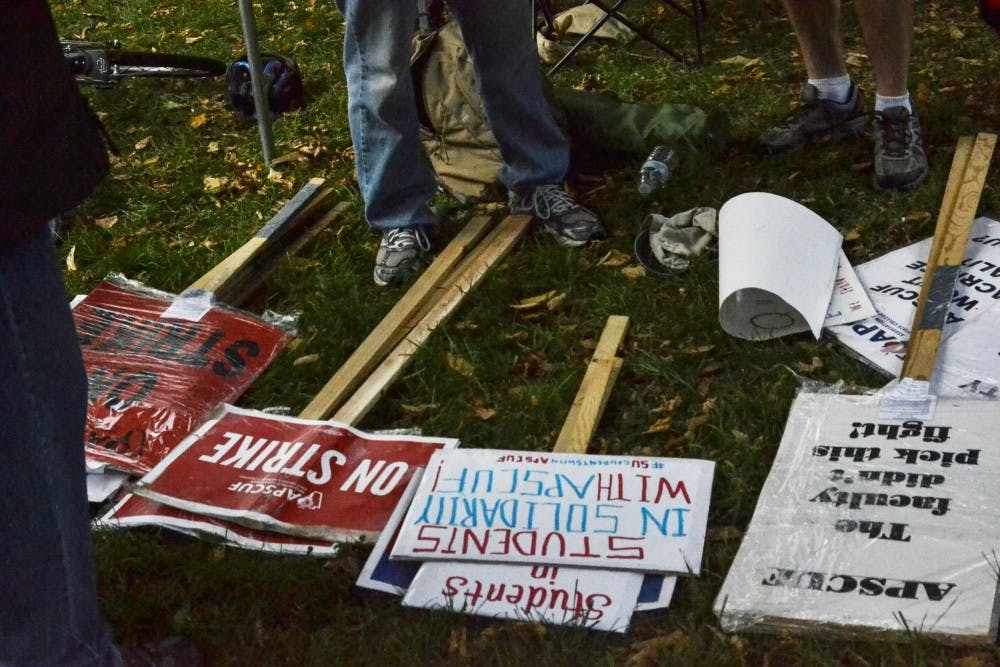The strike is over and the faculty have a tentative contract, but students, faculty and the rest of the state system face continued obstacles involving finances and quality education.
APSCUF members are to vote this week on the agreement union leaders made with the state system on Friday. The details of the new contract will be released once the union ratifies the deal, according to APSCUF.
APSCUF President Kenneth Mash said the new contract ensures adjunct faculty will be treated fairly when it comes to salary, but it could affect how well universities attract quality faculty.
The students’ support of faculty during the strike strengthens the collective power of educators and increases unionization in higher education, said Kara Laskowski, APSCUF SU’s chapter president.
“Who wouldn’t want to be part of that?” she said, referring to educators looking for employment in the state system.
The momentum of the strike can also be used to push the state for more appropriations, Laskowski said.
“APSCUF’s work to preserve quality public higher education is a constant effort,” Mash said. “We will continue to advocate for fair state funding for our universities, and we’ll stand up against any future proposals that could hurt quality.”
Increased state funding would help state system universities, but it is not likely it will be enough to offset rising costs, said Kenn Marshall, PASSHE’s media relations manager.
The PASSHE Board of Governors voted unanimously on Oct. 6 to ask the state for $505.2 million in state appropriations for next year, according to a PASSHE press release. That is $61 million more than the current levels.
The state system projected it will face a multi-million dollar deficit for the 2017–18 fiscal year, despite $30 million in increases over the past two years.
“We believe the $61 million increase being requested is a realistic number, and one worth advocating for,” said PASSHE Chancellor Frank Brogan. “We need to cover the deficit.”
While enrollment rates are already lower than previous years, Marshall said there is no way to predict if enrollment rates will drop because of the strike. Lower enrollment in PASSHE schools means lower funding via tuition, which hurts PASSHE’s budget.
Marshall said the new contract is to provide raises to all faculty members, while including the necessary cost-saving healthcare PASSHE was looking to get. The contract’s terms will impact PASSHE and university budgets, he said.
The 14 universities were required to cut almost $300 million over the past 10 years, because of budgetary challenges.
“Aside from the contract, we need to all work together to increase funding for our schools,” Mash said, “so that we can stop increases in tuition and ensure the universities provide the best education for our students.”


The Slate welcomes thoughtful discussion on all of our stories, but please keep comments civil and on-topic. Read our full guidelines here.